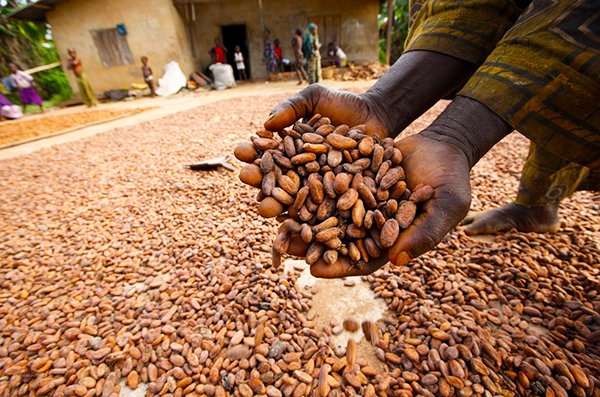The Nigerian cocoa industry, despite being a significant global player in bean production, faces a critical challenge: low domestic consumption. Operators within the sector are urgently calling upon the Federal Government to implement policies that stimulate local demand for cocoa products, particularly chocolate. This appeal echoes previous calls, like the 2019 request from the Cocoa Farmers Association of Nigeria (CFAN) to incorporate cocoa tea into the national school feeding program. The prevailing low consumption, attributed to cultural factors and a lack of awareness regarding cocoa’s health benefits, is seen as a significant impediment to the industry’s growth. Stakeholders believe that a government-led initiative to promote cocoa consumption can cultivate a lasting appreciation for these products within the Nigerian population.
A key proposal put forth by Mufutau Abolarinwa, President of the Cocoa Association of Nigeria (CAN), is the mandatory inclusion of chocolate in school meals for primary and secondary students. This strategy aims to establish a cocoa-consuming culture from a young age, ensuring future generations develop a taste for and understanding of the product’s nutritional value. Creating a robust domestic market for processed cocoa products, including chocolate, is viewed as essential for the development of a thriving value chain within Nigeria. Abolarinwa emphasizes the importance of a long-term approach, focusing on cultivating the next generation of cocoa consumers rather than solely relying on current consumption patterns.
While Nigeria does import cocoa powder, which suggests some level of local processing and consumption, the overall intake remains insufficient to drive significant growth in the sector. Data from the National Bureau of Statistics reveals substantial imports of cocoa powder from ECOWAS countries, indicating a reliance on external sources even for processed products. Despite cocoa being a top agricultural export, generating substantial revenue, the lack of a robust domestic market limits the industry’s full potential. This contrast highlights the disparity between Nigeria’s production capacity and its internal consumption, a gap that industry leaders are eager to bridge.
Adeola Adegoke, President of CFAN, points out the inherent disadvantage Nigeria faces compared to established global chocolate markets. He argues that Nigeria’s competitive edge lies in cocoa bean production and initial processing, rather than finished goods like chocolate. Challenges in meeting international standards for cocoa consumables further complicate the situation. Adegoke emphasizes the futility of focusing on products for which the primary market lies outside Africa, advocating instead for concentrating on production, where Nigeria holds a distinct advantage. This perspective highlights the need for a strategic approach to market development, leveraging existing strengths while addressing the limitations within the processing and manufacturing segments.
Data from international organizations underscores Nigeria’s position as a major cocoa producer but also reveals the limitations in downstream processing and value addition. While Nigeria ranks among the top global cocoa bean producers, its contribution to the processed cocoa market is considerably smaller. A significant portion of Nigeria’s cocoa production is exported as raw beans or semi-processed products like cocoa butter and powder, with a limited percentage utilized for domestic manufacturing. This export-oriented model restricts the development of a robust local industry and limits the potential economic benefits derived from value-added processing. Furthermore, the limited domestic utilization of cocoa by-products for purposes like animal feed or cosmetics represents a missed opportunity for diversification and maximizing resource utilization.
Industry stakeholders propose concrete solutions to address the consumption deficit. CAN President Abolarinwa suggests government subsidies for chocolate in schools, making it more accessible and affordable for students. This, coupled with educational campaigns highlighting the health benefits of chocolate, particularly its contribution to brain development, could significantly increase consumption. The contrast between the high demand for cocoa in Western markets, driven by an understanding of its nutritional value, and the relatively low consumption in Nigeria underscores the need for greater consumer awareness. Promoting the consumption of cocoa powder, which is already gaining traction in the Nigerian market, serves as a foundation for expanding into other cocoa products like chocolate.
The growth of the cocoa powder market in Nigeria offers a promising example of the potential for domestic consumption. Local manufacturers are successfully producing and selling cocoa powder, supplying major players like Cadbury and Nestle. This demonstrates the existing capacity within the country to produce and distribute cocoa-based products. Expanding this success to chocolate could significantly boost the overall cocoa industry, driving up the price of Nigerian cocoa on the global market and strengthening the country’s bargaining power. By increasing local consumption, Nigeria can reduce its dependence on foreign markets and secure greater control over pricing, ultimately benefiting the entire cocoa value chain. The success of cocoa powder provides a model for replicating this growth in other cocoa product segments, demonstrating the potential for a vibrant domestic cocoa market.














